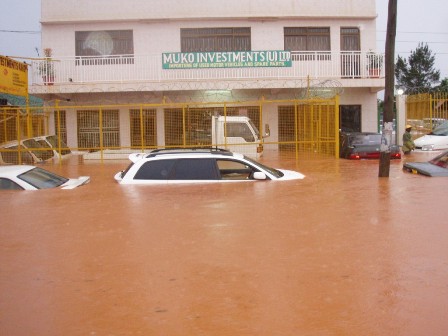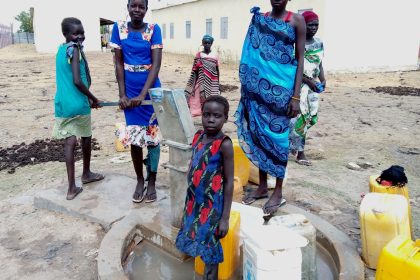Uganda cities face high exposure to climate-change risk says Obiga-Kania

Urban centres in Uganda face an elevated risk of exposure to the fallout of climate change, unless planners adapt and incorporate strategies for resilience in their growth plans, says junior minister for lands, Obiga Kania.
Speaking during a media dialogue ahead of World Cities Day last week, Kania said Uganda was rapidly urbanizing, often creating conditions that increase vulnerability to climate change. Immediate impacts are frequent flooding and deteriorating air and water quality, among others.
Unless planning catches up with growth and anticipates future challenges in order to incorporate inbuilt resilience, urban centres remain vulnerable to negative fallout from climate change; with dire consequences for quality of life and their functionality as growth drivers, Kania observed.
 “As cities expand, they engulf environmental and ecological systems like floodplains, forests, and wetlands that naturally exist,” Kania said.
“As cities expand, they engulf environmental and ecological systems like floodplains, forests, and wetlands that naturally exist,” Kania said.
He added that while urban economies were making a significant contribution to national GDP, the associated economic activities are vulnerable to climate risk. And due to their central role, when urban economies are impacted by climate change, the effects ripple downstream throughout the economy.
Urbanisation is a dynamic and complex process that exerts pressure on finite resources such as land and water. Encroachment on marginal areas triggers natural and man-made disasters including but not limited to land degradation, falling air and water quality, poor solid waste management, flooding. These have a direct bearing on quality of life, human health and urban assets.
Those risks are amplified in informal and unplanned settlements where the urban poor live in an infrastructure deficit.
According to a vulnerability index that the ministry developed for 21 urban centres, four – Amudat, Nakasongola, Paidha and Malaba town councils fall in the extreme risk category while five – Mpondwe and Kiruhura town councils, as well as Gulu, Moroto and Kamuli municipalities- scored a high climate change vulnerability index.
“If focus and action is not taken now to plan for sustainability and resilience, regional cities will be affected by climatic change and emergencies whose cost can grow exponentially every year,” Kania cautioned.
Higher temperatures and associated increases in rainfall, are for instance expected to result in a high burden of malaria as it spreads to zones where it was nor previously prevalent. In Kabale for instance, it is projected that the cost associated with a rising incidence of malaria will increase from between USD 0.7m-15.8m today, to between USD1.55m and 41m annually by 2050.
However, according to Dr. Revocatus Twinomuhangi, a Senior Lecturer in the Department of Geography, Geo- Informatics and Climatic Sciences at Makerere University and Coordinator of the Makerere University Centre for Climate Change Research and Innovations, cities can be a source of economic opportunity if inclusive development is embraced.
The urban poor need to be integrated in urban planning for them to benefit from and get a sense of ownership of urban centres, if cities are to break free of the push and pull factors that make them both victims and drivers of climate change.
That calls for enhancing the technical skills and knowledge of municipal officer holders as well as well thought infrastructure development, he added.

 African Heads of state head to South Korea next week for Summit talks
African Heads of state head to South Korea next week for Summit talks
 Trading leads as main source of income for Ugandans
Trading leads as main source of income for Ugandans
 Unpacking results-based financing: balancing strengths with weaknesses
Unpacking results-based financing: balancing strengths with weaknesses
 Women social entrepreneurs offered chance to visit New York
Women social entrepreneurs offered chance to visit New York
 Why and how economics must change
Why and how economics must change
 Stanbic Bank Uganda Chief Executive elevated to regional role in Nairobi
Stanbic Bank Uganda Chief Executive elevated to regional role in Nairobi
